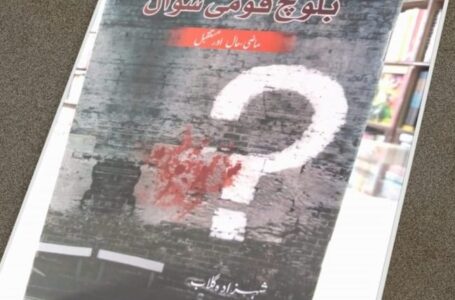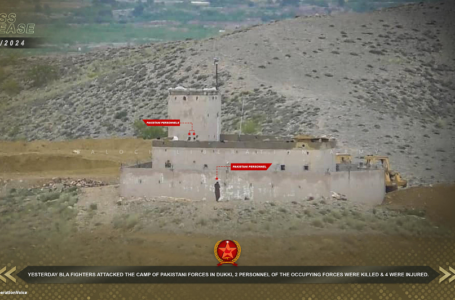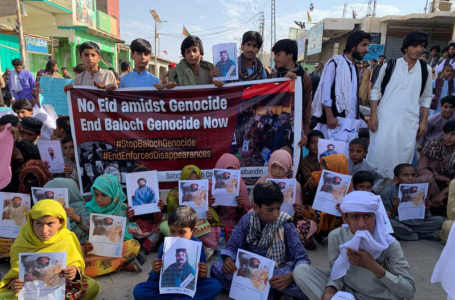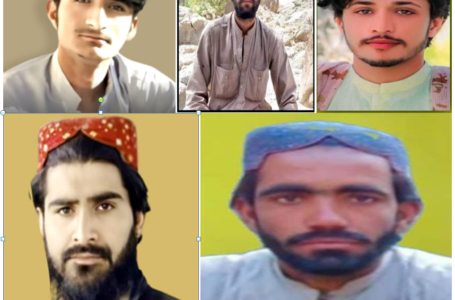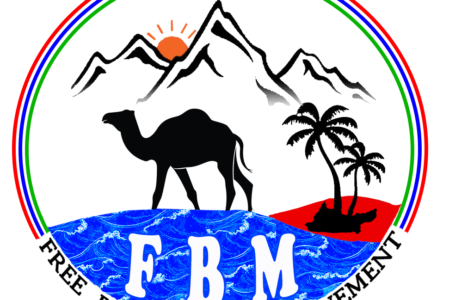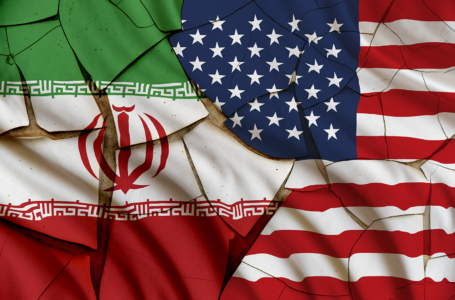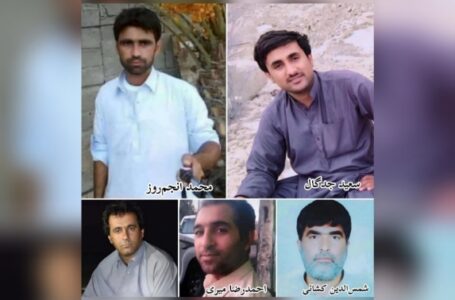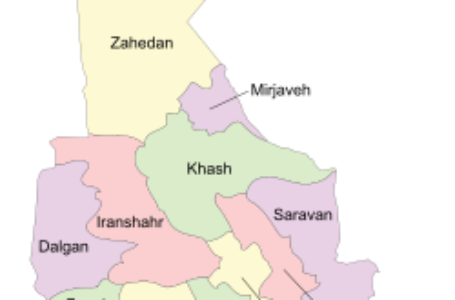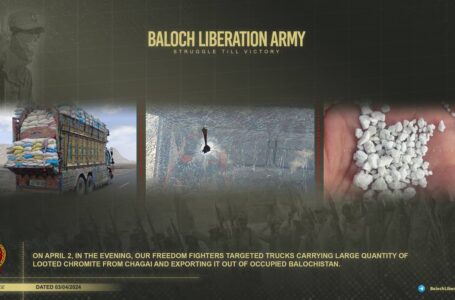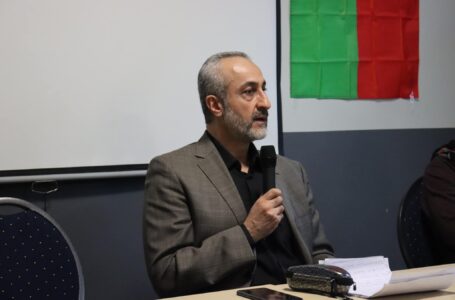Foreign countries should refrain from becoming Pakistan’s partner in Baloch Genocide: FBM
Biased approach of BBC Urdu toward Balochistan
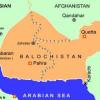
By Shahdad Baloch
On the BBC’s ‘dedicated news channel’ formally known as BBC Urdu the lead stories at 9 pm were spot-fixing in Pakistan’s cricket, followed by a quick trot reports on the referendum in Turkey, child labour in Pakistan and views of Sayyada Hussain. BBC Urdu likes to trumpet its bulletins “breaking news, developing stories.” Not much breaking or developing here!
On April 17, Pakistani army abducted two Baloch women along with two children from Kahan Balochistan but this news was nowhere to be seen on BBC Urdu neither do the BBC Urdu reports other regular offensives of Pakistani forces across Balochistan. It is safe to assume that BBC Urdu is intentionally silent about the human crisis in Balochistan because their news is mostly confined to Kashmir issue, Panama Leaks investigation, tweets of ISPR, an ISI officer went missing from Nepal. Such partial journalism shows that BBC Urdu is an authoritative news channel of Pakistan, whose “gatekeeper” is Pakistani establishment.
The uncomfortable truth is that the channel is crippled by its format, with fixed elements occupying an absurdly large proportion of every broadcast hour. This emerging phenomenon has rendered British Broadcasting Corporation merely as a name, but the real impression that comes to diverse audiences are – the transformation of BBC Urdu, either as “PBC Urdu” or “KBC Urdu”, (the Pakistan Broadcasting Corporation or Kashmiri Broadcasting Corporation). The nexus of BBC Urdu with the state of Pakistan is challenging the impartiality and objectivity of the world news medium. There are allegations of Baloch and Indian nations that the corporation lacks impartial and objective journalism on both left and right sides of political spectrums. The other issues that observers noticed are the methodology of “collections of taxes” for the license fee of media channel and lack of accountability about balance news that satisfies all the viewers.
The comparative researchers on public opinion show that BBC Urdu is a Pakistan-centric media, which is not partial and lacks transparency in its news. Suppose the concerned media is biased on its news regarding Balochistan issue, which comprises news about the human crisis in Balochistan, routine abductions of Baloch women and children by the Pakistani army, getting the opinions of pro-freedom Baloch and struggle for freedom in Balochistan. This seems that like Pakistani media, BBC Urdu is also under the control of Pakistani army and politicians who are playing the role of “Gatekeeper” who have replaced British Broadcasting Corporation Urdu to Pakistan broadcasting corporation in Urdu but with a British tag.
Likewise, in Kulboshan Yadhav’s case BBC Urdu has adopted the same policy of biasedness. Kulboshan Yadhav was promptly labeled as: “A RAW agent who assisted Baloch separatists has been captured by Pakistani establishment from Balochistan.” They completely neglected the reality that Kulboshan Yadhav was first arrested by Pakistan-based “Good Taliban” from Iran and handed over to Pakistan army, just to dilute Baloch freedom movement and to defame India. The BBC Urdu has also not even mentioned Indian officials’ opinion regarding Kulboshan Yadhav case. However, on the other side of the spectrum, BBC Urdu covered all news and opinions regarding a Pakistani army officer Lt Col (rtd) Muhammad Habib Zahir who has gone missing from Lumbini in Nepal. Unlike Kulboshan Yadhav case, BBC Urdu built an opinion that India is behind his abduction.
The BBC Urdu ignores frequent protests of the Baloch nation within Balochistan and abroad but magnifies the protests and news in Kashmir. Baloch women protest every day before Pakistani army camps for the release of their beloved ones but nobody listens to their plea, not even the BBC Urdu. likewise, Baloch activists have been protesting in different countries but the majority of their protest go unnoticed by BBC Urdu. In July 2016, the Free Balochistan Movement organised the first ever and longest Baloch march in Europe – from Dusseldorf to Berlin.
Last year, the Free Balochistan Movement held a week-long round the clock vigil in front of Chinese Embassy (only five minutes walked from BBC headquarters in London) to record the Baloch nation’s protest against China-Pakistan Economic Corridor (CPEC). Similarly, other Baloch parties held protests in different countries around the world BBC Urdu didn’t give due coverage to Baloch international protests. With having consciousness of “Proximity in news” BBC Urdu took the policy of detachment of Balochistan from Pakistan just to favour Pakistani establishment.
Hundreds of Baloch villages and towns that are on CPEC route have been ruthlessly erased and obliterated by Pakistan army in the name of development. The media, however, continues to justify the lies of the Pakistani army who portray CPEC as a game changer whereas, in reality, the people of Gwadar do not even have clean drinking water. The fishermen community have lost their livelihood.
BBC world service began its transmission in Urdu before the making of Pakistan in 1940 but the diaspora with this news medium gained momentum in the contemporary age when observers are witnessing it as an impartial media whose inclination is towards Pakistan’s interests. The sufferings of the Baloch nation and rampant use of lethal weapons on Baloch en masse coupled with unchecked abductions of Baloch women and children are the hot issues which are rendered as meaningless by “Pakistani-based” BBC Urdu.
Baloch nation and leadership including Mr. Hyrbyair Marri, Dr. Allah Nazar Baloch, and Brahumdagh Bugti have raised the issue several times via social media and through their statements that BBC Urdu should pay heed towards Baloch nation’s sufferings under Pakistani occupation. Aso, thousands of tweets of Baloch social media activists are on record in which BBC Urdu has been mentioned about the happenings in Balochistan. Despite this, the concerned media is intentionally neglecting the grievances of the Baloch people but promoting the image of Pakistan. An image that the world has had enough now!

